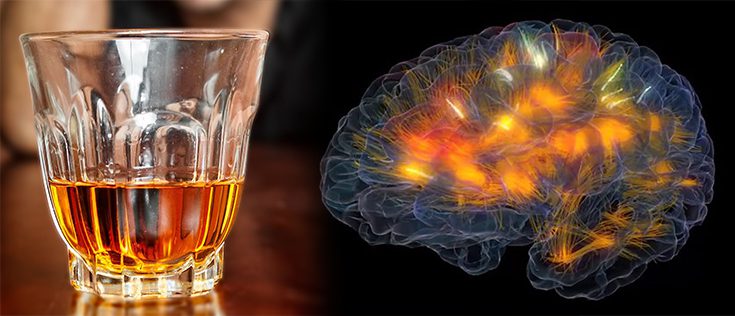
One For My Baby, And One For The Road: Neurons That Inform You To Quit Drinking Identified
You know that voice inside your head, the one that only speaks up when you’ve had too much to drink? It’s the voice that says. “Hey, have one more! Why not?”
Well, now that voice has a new counterpart: according to one study, a group of scientists say they have identified a particular neuron that, once it is turned on, can help you stop drinking alcohol.
The study, out of Texas A&M says the findings are significant enough that it could herald a whole new approach to treating alcoholism, perhaps even preventing people from starting to drink in the first place.
At issue are what have been called the “spiny neurons,” which were found in 2015 study to be affected by drinking alcohol. The function and even that actual physical nature of the spiny neurons is altered in the presence of alcohol. This study also found that what is called the D1 neuron helps the brain decide whether one drink will have a domino effect or not–will lead to more drinking.
The D2 neurons on the other hand discourage further action and help to stave off addiction. But when the brain is aslosh with alcohol, these D2 receptors are deactivated, which leads to binge drinking, even in those who aren’t alcoholics.
“At least from the addiction point of view, D2 neurons are good,” said on eo fthe study’s authors, Jim Wang, assistant professor at the A&M College of Medicine. “When they are activated, they inhibit drinking behavior, and therefore activating them is important for preventing problem drinking behavior.”
By testing their theories on several types of animals, the researchers concluded that when alcohol is consumed to excess, even following a period of abstinence, the D2 neurons are rendered less active and become more insensitive over time. This can cause a person to return to drinking, even if they are in “recovery.”
But the key could lie in “turning on” the D2 neurons, which the researchers say resulted in less alcohol consumption.
But getting a bunch of cows and mice drunk is one thing. Certainly full human trials are needed to determine the efficacy and function of the D2 neuron and how it might work in practice.
But as far as offering a promising road forward in dealing with and possibly even preventing chronic alcoholism, the Texas A&M study seems to be firmly on the right track.
###
http://naturalsociety.com/scientists-identify-neurons-people-stop-drinking-8468/
